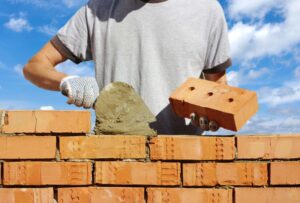Junk removal services are a lifesaver for homeowners and businesses that want to declutter and regain lost space. They also provide eco-friendly waste disposal solutions.

Starting a junk removal business requires capital to cover startup costs like equipment and licensing. Other costs include monthly truck payments, insurance, and marketing.
If you have junk you want to get rid of, a junk removal company can help. These companies charge a fee to remove your unwanted items and dispose of them properly. Most junk removal services calculate their prices based on the amount of space your junk will take up in their truck. They typically have a one-eighth truckload minimum. If you have large, bulky items such as an old mattress or refrigerator, the cost may be higher.
Most junk removal companies will recycle as much as possible, and they are careful not to throw any hazardous materials away. Some companies will also donate your items to charity. This is a great way to give your clutter a second life and help others.
The most common types of junk include broken electronics, furniture, and yard waste. However, some companies will accept other types of unwanted items. For example, some will take old scrap metal, such as aluminum, copper, silver, or tin. This type of metal can be recycled and reused to make new products, such as building materials or cars. If you have any scrap metal lying around, a junk removal service can usually pick it up for you.
Junk removal services can also help businesses clean up their offices or warehouses. This can improve productivity and allow employees to focus on their work. Additionally, junk removal services can handle sensitive items, such as emptying a deceased person’s home or helping someone with a hoarding disorder.
When hiring a junk removal service, be sure to choose a licensed and insured company. This will protect you from any damage that the company may cause while cleaning out your home or business. It is also important to know how the junk removal company will dispose of your waste. Some companies dump their waste in landfills, which is bad for the environment.
You can reduce your junk pile by separating it into three groups. Keepsakes and collectibles, items for donation, and straight-up trash should all go into different containers. This will help you be more organized when cleaning out your home or office, and it will ensure that all of your junk ends up in the right place.
Recycling
A quality junk removal company goes through the materials they pick up to make sure they can repurpose as much of it as possible. This not only saves them money on disposal fees but also helps the environment. For example, a lot of metal can be recycled. Copper, for instance, has a reddish color and can be found in old wires, extension cords, and plumbing pipes. Aluminum is another material that can be recycled. It’s commonly used in window frames, car hoods, and bicycles. It doesn’t stick to magnets like steel, but you may find it in soda cans and beer cans as well.
Not only does recycling reduce the amount of junk that ends up in landfills, but it also conserves natural resources and energy. It also cuts down on greenhouse gas emissions and creates a healthier environment. Companies that implement sustainable junk removal practices often gain a strong reputation for environmental stewardship and social responsibility. This often leads to increased customer loyalty and a competitive advantage in the marketplace.
Junk removal services can help businesses with sustainable waste management by allowing them to focus on what matters most – the business. Whether it’s decluttering offices or reorganizing warehouses, a more organized space allows staff to focus on tasks and improve productivity. Junk removal also benefits customers by reducing the clutter in their homes and helping them live in a more comfortable environment.
The best way to prevent junk from becoming a problem is to produce as little of it as possible in the first place. However, for the items that can’t be repurposed or thrown out, recycling is the best option. Choosing to recycle helps to preserve the environment, conserves natural resources, and reduces greenhouse gas emissions, all while creating jobs and boosting community development.
When it comes to sustainable junk removal, a number of factors are considered when setting prices for their services. For example, the cost of transporting materials to and from a recycling facility must be factored in. Similarly, the disposal fees must be considered as well as any potential new revenue streams that can be generated from the materials.
Environmental Impact
The junk removal industry might not be the most glamorous one, but it plays an important role in keeping our communities clean and healthy. Each year, Americans generate between 800 and 1,100 kilograms of waste, which puts the junk removal industry in a unique position to help tackle this growing problem. Junk removal companies provide a vital service by hauling away unwanted items that would otherwise end up as trash on our streets, in our landfills, and even in the oceans.
Responsible junk removal companies take environmental concerns seriously, and they work hard to minimize the impact of their business on the environment. They do this by separating dry recyclables (such as metals, plastics, and paper) from other types of waste, and they use automated processes to streamline the process. This helps reduce the need for manual labor, which in turn cuts down on pollution and energy consumption.
They also make it a point to donate or reuse as much of the junk they collect as possible. This not only gives items a new life, but it also reduces waste and encourages a culture of sustainability. For example, old clothes can be donated to those in need, and discarded wooden pallets can be used to create unique garden planters or rustic loungers.
Lastly, junk removal companies strive to use sustainable practices when disposing of hazardous waste. This type of waste includes electronics, batteries, paints, and other toxic substances. It is important to contact your local hazardous waste disposal company for more information about how to dispose of these items properly.
Overall, responsible junk removal is a necessary and positive service for the environment. It keeps our communities clean and healthy, and it reduces greenhouse gas emissions by minimizing the amount of waste we send to landfills. In addition, it promotes a circular economy that reduces the need for new raw materials and energy.
However, it is important to keep in mind that junk removal is a resource-intensive industry. To minimize the environmental impact, we should focus on reducing the amount of waste we produce in the first place. This can be done by avoiding over-buying and purchasing secondhand items, using recycled products, and donating or reusing as much of our unwanted items as possible.
Safety
While junk removal can be a rewarding experience, it’s important to assess the situation and take the appropriate safety measures. Doing so can minimize potential injuries and ensure a more efficient cleanout process. Identifying any hazardous materials, separating them from other trash, and following local regulations regarding their disposal are crucial for ensuring the health of yourself and others. Additionally, wearing personal protective equipment such as gloves, eyewear, and dust masks is essential for avoiding exposure to harmful substances.
Sorting items into different categories is a great way to streamline the junk removal process and minimize environmental impact. Separating items into recyclables, hazardous waste, and general junk can help avoid contaminating landfills and reduce the amount of waste sent to incinerators and transfer stations. Additionally, donating items that are still usable rather than throwing them away can save money and resources.
During junk removal, it’s also important to remember that overexertion can lead to back pain and other serious injuries. Taking regular breaks, drinking water, and using a back support belt can prevent these injuries from occurring. It’s also recommended to consider hiring a professional junk removal company if the cleanup is extensive or involves heavy items.
Junk removal companies take the environment seriously and work to recycle as much as possible. By assessing the type of junk and understanding its source, they can plan the logistics of transporting it to recycling facilities. They can also provide tips on how to reduce the environmental impact of a junk removal project.
Junk can be a significant waste of time and resources, especially when it’s not disposed of properly. By focusing on the needs of specific groups, such as residential clients or construction sites, junk removal services can better tailor their offerings and marketing strategies to meet these demands. This can also help them reduce their waste footprint and promote sustainability in the community. The specialized focus can also help them attract a more qualified client base and grow their business. In addition, it can help them achieve better operational efficiencies and increase productivity.

